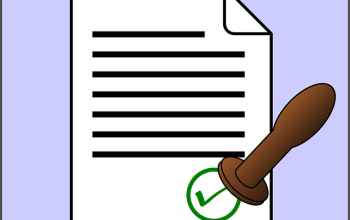navigating the intricacies of legal compliance and bonding is an indispensable aspect for notaries aiming to safeguard their practices. This article delves into the essential steps for establishing a secure foundation in your notary business, emphasizing notary liability protection, notary business security, and the strategic use of errors and omissions insurance. By understanding the roles and responsibilities inherent to being a notary public, notaries can enhance their legal protection, prevent fraudulent activities, and manage risks effectively. These measures are crucial for fostering a trustworthy reputation and ensuring long-term success in your professional endeavors.
- Understanding Notary Public Roles and Responsibilities
- The Importance of Legal Compliance in Notary Practices
- Navigating Notary Bonding Requirements: A Guide for Protection
- Essential Steps to Implement Robust Notary Business Security Measures
- Notary Errors and Omissions Insurance: Safeguarding Against Claims
- Strategies for Fraud Prevention in Notary Transactions
- Risk Management Best Practices for Notaries to Ensure Client Confidentiality and Legal Adherence
Understanding Notary Public Roles and Responsibilities

Notaries play a critical role in the legal system by witnessing and attesting to the validity of documents, ensuring their integrity in legal transactions. A deep understanding of the roles and responsibilities inherent to the notary public position is essential for any notary seeking to provide exemplary service while mitigating risks associated with their duties. Notaries must be well-versed in legal compliance, which includes adhering to state and federal laws that govern their activities. This knowledge is pivotal in preventing notary errors and omissions, which can lead to significant consequences if not properly addressed. To safeguard against such eventualities, notaries should invest in notary liability protection, a form of legal protection for notaries that offers a financial safety net against claims arising from allegations of negligence or improper conduct.
In addition to robust legal protection, implementing notary business security measures is paramount to protect sensitive information and transactions. This encompasses both cybersecurity measures to secure digital records and physical security protocols to safeguard documents and client confidentiality. Fraud prevention for notaries involves regular updates on the latest scams targeting their profession, continuous training in identification techniques, and the adoption of secure technology solutions. Effective risk management strategies combine these elements with a proactive approach to compliance, ensuring that notaries are prepared to handle complex situations while maintaining the trust of their clients and upholding the integrity of their practice. By doing so, notaries can build a secure foundation that supports long-term growth and success in their professional endeavors.
The Importance of Legal Compliance in Notary Practices

Notary liability protection is a critical aspect of maintaining a secure and trustworthy notary practice. Legal compliance is paramount in this field, as it ensures that notaries adhere to the laws and regulations governing their operations. This compliance protects against potential legal ramifications and upholds the integrity of the notarial act. Notaries must stay abreast of changes in legislation that affect their practices, as failing to comply can lead to penalties or loss of certification. Implementing strict adherence to legal guidelines also safeguards clients’ confidential information, which is a cornerstone of trust between the notary and their clientele.
In addition to legal compliance, a robust notary business security framework is essential. This includes obtaining notary errors and omissions insurance, which serves as legal protection for notaries by covering costs associated with claims arising from mistakes or oversights in the course of their duties. Fraud prevention measures are also integral to risk management within a notary practice. By employing secure practices and technology solutions, such as encrypted communication channels and secure document storage, notaries can significantly reduce the risk of fraudulent activities. These proactive security measures help to ensure that notaries can operate with confidence, knowing that they have taken all reasonable steps to protect both their clients’ privacy and their own professional standing.
Navigating Notary Bonding Requirements: A Guide for Protection

Navigating notary bonding requirements is a critical aspect of ensuring notary liability protection and establishing a secure foundation for your practice. Notaries are often required to obtain notary business security through a surety bond, which serves as a financial guarantee that they will adhere to the laws and regulations governing their profession. This bond can protect both the notary and their clients by covering any damages or losses resulting from notary errors and omissions insurance. The bond amount, stipulated by state law, varies depending on the jurisdiction but is designed to compensate for any harm caused by a notary’s negligence or misconduct.
In addition to the bond, legal protection for notaries can be enhanced through specialized insurance policies such as errors and omissions (E&O) insurance. This type of coverage is tailored to address the unique risks associated with the notarization process, providing a critical layer of fraud prevention for notaries. It shields against claims arising from alleged mistakes in the notarization process or mishandling of documents. Implementing robust risk management strategies, including regular reviews of notary practices and staying abreast of legal updates, is essential for maintaining notary business security. By doing so, notaries can safeguard their professional reputation and client relationships, fostering an environment of trust and reliability that supports the long-term viability and success of their practice.
Essential Steps to Implement Robust Notary Business Security Measures

To establish a robust security framework for your notary business, it is imperative to prioritize notary liability protection and implement comprehensive risk management strategies. A pivotal step in this process is obtaining notary business errors and omissions insurance, which serves as a financial safeguard against claims of negligence or mistakes made during the course of professional duties. This type of coverage is essential for shielding your assets and personal finances from potential lawsuits, ensuring that your business can withstand such challenges without compromising its operational continuity.
In addition to securing insurance, legal protection for notaries encompasses adherence to strict data handling and client confidentiality protocols. Fraud prevention for notaries should be a top priority, given the sensitive nature of the documents they handle. Implementing advanced cybersecurity measures, such as firewalls, encryption, and secure client portals, is crucial in mitigating the risk of data breaches and identity theft. Regularly updating security software and conducting vulnerability assessments can help identify and address potential weak points before they can be exploited. By combining these technical solutions with sound business practices and staying abreast of evolving compliance requirements, notaries can create a secure environment that protects their clients’ interests and fosters trust in their professional capabilities. This proactive approach to security and legal compliance underscores the commitment to maintaining the highest standards of integrity and reliability within the notary profession.
Notary Errors and Omissions Insurance: Safeguarding Against Claims

Notary liability protection is a critical component in the robust framework that safeguards against potential claims arising from professional errors or omissions. A notary’s primary duty is to ensure the authenticity of legal documents; however, human error is an inevitable aspect of any profession. Notary errors and omissions insurance serves as a safeguard, providing financial coverage for losses resulting from inadvertent mistakes made during the notarization process. This insurance acts as a shield against unforeseen events such as document fraud or misrepresentation, which can tarnish a notary’s reputation and jeopardize their business operations. By securing this form of legal protection for notaries, professionals are able to operate with greater confidence, knowing that they have a financial buffer to fall back on in case of a claim. This not only protects the notary’s assets but also reinforces the trust clients place in them.
Incorporating fraud prevention measures and effective risk management strategies is equally crucial for a notary business’s security. Legal protection for notaries includes adherence to strict protocols that verify the identity of individuals and ensure the authenticity of documents. These protocols are designed to prevent fraudulent activities and safeguard against breaches in client confidentiality. Notary risk management extends beyond the confines of the physical office, encompassing digital security measures to protect sensitive information stored on electronic platforms. By staying abreast of technological advancements and implementing up-to-date cybersecurity practices, notaries can fortify their practices against evolving threats, thereby ensuring the integrity and trustworthiness of their professional services. This comprehensive approach to legal protection for notaries is an essential aspect of notary business security, creating a secure foundation upon which long-term success can be built.
Strategies for Fraud Prevention in Notary Transactions

Notary liability protection is a critical component in safeguarding your practice from potential legal and financial repercussions arising from notary errors and omissions. Implementing robust risk management strategies is essential to prevent such incidents. One of the most effective measures for fraud prevention in notary transactions involves meticulous client identity verification processes, ensuring that the individuals presenting themselves for notarization are who they claim to be. This step is pivotal in preventing document fraud and unauthorized acts. Additionally, maintaining a secure environment with tamper-evident seals on documents and employing high-quality security equipment can deter fraudulent activities. Notaries should also stay abreast of the latest scams and fraud trends that target their services, adapting their practices accordingly to maintain vigilance against such threats.
Furthermore, investing in notary business security extends beyond physical measures. Legal protection for notaries can be bolstered through notary errors and omissions insurance, which offers a financial safeguard should a claim be made against a notary’s actions. This coverage is designed to compensate for losses resulting from fraud or other unforeseen errors, providing peace of mind and ensuring that your practice remains operational even in the face of legal challenges. Notaries must also establish clear protocols for handling sensitive information, upholding client confidentiality, and maintaining a pristine reputation. These protocols, combined with comprehensive insurance coverage, form an impregnable shield against potential fraud and contribute to a trustworthy notary business environment.
Risk Management Best Practices for Notaries to Ensure Client Confidentiality and Legal Adherence

Notaries play a critical role in the legal system by witnessing and authenticating documents. To uphold this responsibility, implementing robust risk management practices is essential. One of the key strategies for notary liability protection involves maintaining strict client confidentiality. This not only adheres to ethical standards but also mitigates the risk of sensitive information being compromised. Notaries should establish and follow protocols that ensure all client data is handled with utmost security, including secure document storage and controlled access to electronic records.
In addition to confidentiality measures, securing a notary errors and omissions insurance policy is a fundamental component of legal protection for notaries. This insurance serves as a financial safeguard against potential claims or lawsuits that may arise from alleged professional negligence or mistakes. Furthermore, fraud prevention for notaries should be taken seriously by implementing verification processes for identities and document authenticity. Regular training on the latest fraud schemes and scams is also advisable to keep abreast of emerging threats. Risk management for notaries is an ongoing process that requires vigilance, proactive planning, and a commitment to staying informed about legal requirements and best practices. By doing so, notaries can provide comprehensive legal protection for themselves and their clients, thereby ensuring the integrity and reliability of their services in the long term.
In conclusion, the role of a notary public extends beyond mere documentation; it encompasses a commitment to legal compliance, robust security measures, and proactive risk management. By adhering to notary bond requirements and understanding the nuances of notary liability protection, professionals in this field can safeguard their businesses against potential claims and disputes. Notary errors and omissions insurance serves as an indispensable shield, complementing the legal protection for notaries and providing a financial buffer against unforeseen events. Fraud prevention for notaries is paramount, with strategies to detect and deter fraudulent activities being critical to maintaining trust and integrity in notary transactions. Embracing these comprehensive approaches to risk management ensures that notaries not only comply with legal standards but also uphold the confidentiality and privacy of their clients, thereby establishing a secure foundation for sustainable growth and unwavering professional reputation.



